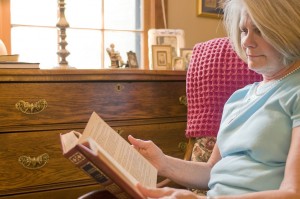As part of a research project in Singapore, a number of new smart homes have been created in the hopes of increasing the privacy, independence and safety of older people.

Fifty one-bedroom apartments in Singapore had motion sensors and panic buttons installed as part of the three-year research project. The panic button allows the residents to sound an alarm if they face any trouble, such as suffering from a fall, while the motion sensors detect “unusual periods of inactivity”, indicating a potential fall or health problems.
Tan Hwee Pink, associate professor at the Singapore Management University, who are conducting the research, said the motion sensors were there for if the person does not have access to the panic button. He said: “If the person is in the toilet and has fallen, he or she has probably left the panic button outside.
“In this case, the system will detect that the last activity was in the toilet and that there was no motion afterwards. After a certain period of inactivity, an alert will be sent to the caregivers.”
The project has been named Project SHINESeniors, with its main goal being to find a safe way for elderly people to continue living in their own homes, and therefore finding a sustainable solution to the ageing population that is growing in countries all over the world. Interviews with some of the study’s participants have found that people would rather live independently than in an assisted living facility, with this pilot scheme hoping to meet those needs. Dr Tan added: “We don’t want our population to be over-stressing the hospitals, and we want them to have a good quality of life in the community they are living in.”
Now that the scheme has come to an end, all of the participants have decided to continue with the living arrangement, with many having recommended it to their friends. Dr Tan said: “What touches me most is to hear from the elderly that the system makes them feel safe.” Following the success of the trial, it is hoped that more smart homes will be built throughout Singapore, and possibly in other countries across the world.
While this setup has not yet been introduced in the UK, there are still several other ways that the elderly can maintain their independence, such as with stairlifts and TGA mobility scooters.







